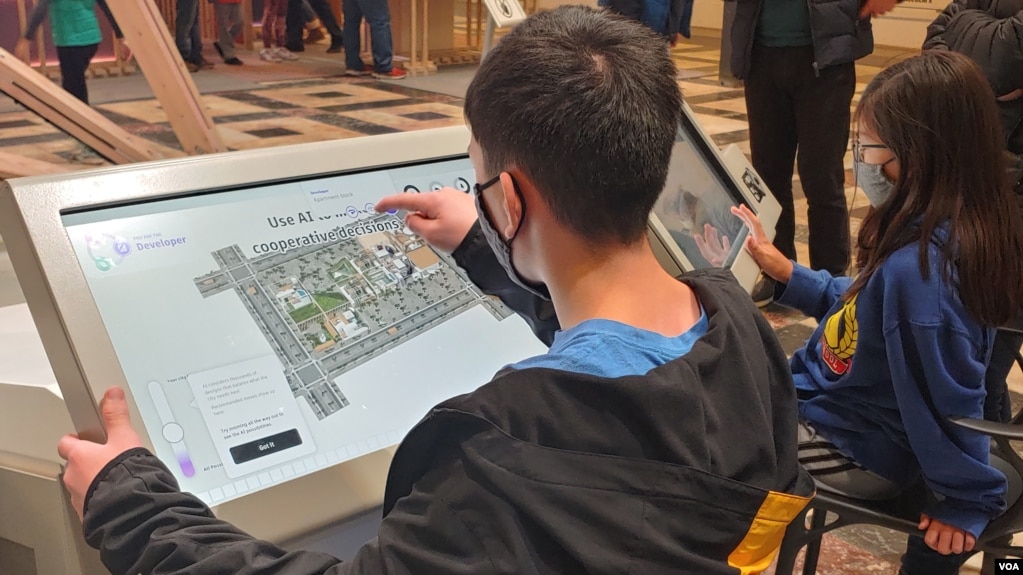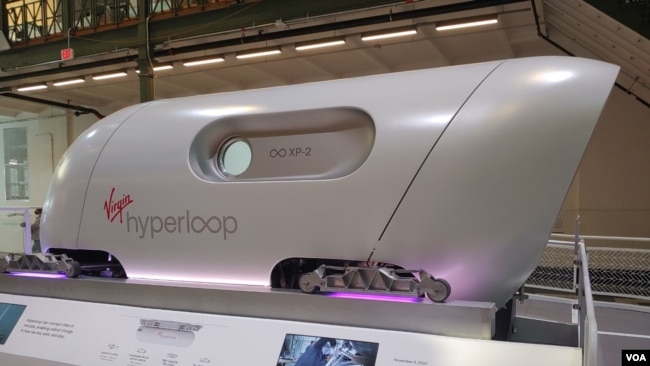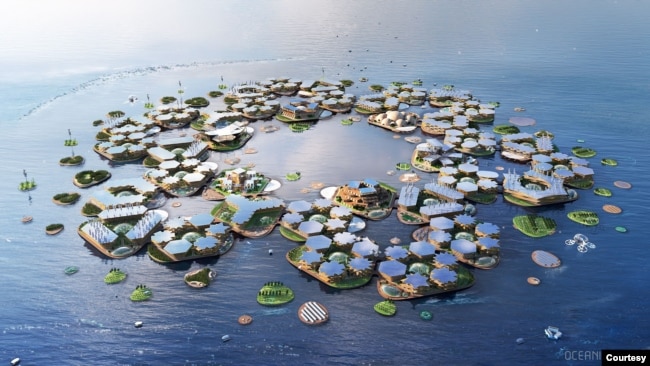'Futures' Exhibit Looks at Possibilities

The “Futures” exhibit at the Smithsonian Institution in Washington, D.C., gives viewers a look at what may happen in the years to come. It is open November 20, 2021 through July 6, 2022.
The exhibit opened as part of the 175th anniversary of the Smithsonian. It is being held at the Arts and Industries Building, which reopened in November after being closed for almost 20 years.
With more than 150 ideas, improvements, technologies and historical pieces, the installation permits viewers to think about how they will live in the future.
Some of those exhibits include how human remains can be put to good ecological use by using them to grow a tree. Another is a “taxi,” but unlike a normal car, it flies, and it can fly itself.
The Virgin Hyperloop is also exhibited. It is a futuristic transport tube that could become a new form of train-like transportation. Virgin said on its hyperloop website that it could have "a lower environmental impact” than other forms of mass transportation. Virgin said it could transport people at speeds of more than 1,000 kph.

The exhibit also provides chances for thought by looking back to past technological improvements, like an 1800s experimental telephone.
The exhibit was designed by the Lab of Rockwell Group, a building and exhibit design firm in New York.
David Tracy is the director of creative technology at Rockwell. He said, "The exhibition opens up many different possible forms that the future can take…” The exhibits are several, small looks at possible futures.
The company designed the newest technology installations called beacons. They have questions that help “… people's imaginations and get them to think about the kind of future they want to see,” Tracy told VOA.

Tracy said to answer the questions, people use hand movements, holding their hand over an answer. This provides health and safety measures since people do not have to touch anything.
Not surprisingly, there are more questions than answers.
Jane McGonigal is the director of game research and development at the Institute for the Future in Palo Alto, California. She said it's difficult for people "to imagine how the future may be different and the technologies that might make it different."
McGonigal told VOA she provided the questions for visitors to help them imagine the future more clearly.
One question asks viewers when they think moon tourism will happen. Another looks at what the future might be like if meat does not come from an animal, but is grown in a laboratory.
Viewer Raj Goel from New York got a taste of what that might be like as he looked at an exhibit that was set up like a store with possible food in the future.
Goel said he is concerned about meat being grown in a lab. But he said he liked the idea of mushrooms, a plant-like food, being used as a sort of meatless meat.
Goel said "Futures" makes him feel a bit like he's walked into a science movie.
He said he was hopeful "because many things I saw here made me think the future is bright."
Words in This Story
exhibit – n. an object or a collection of objects that have been put out in a public space for people to look at
installation – n. a work of art that usually has several parts (such as a sculpture, lights, and sound) and that is usually shown in a large space
taxi – n. a car that carries passengers to a place for an amount of money that is based on the distance traveled
impact – n. a powerful or major influence or effect
tourism – n. the activity of traveling to a place for pleasure